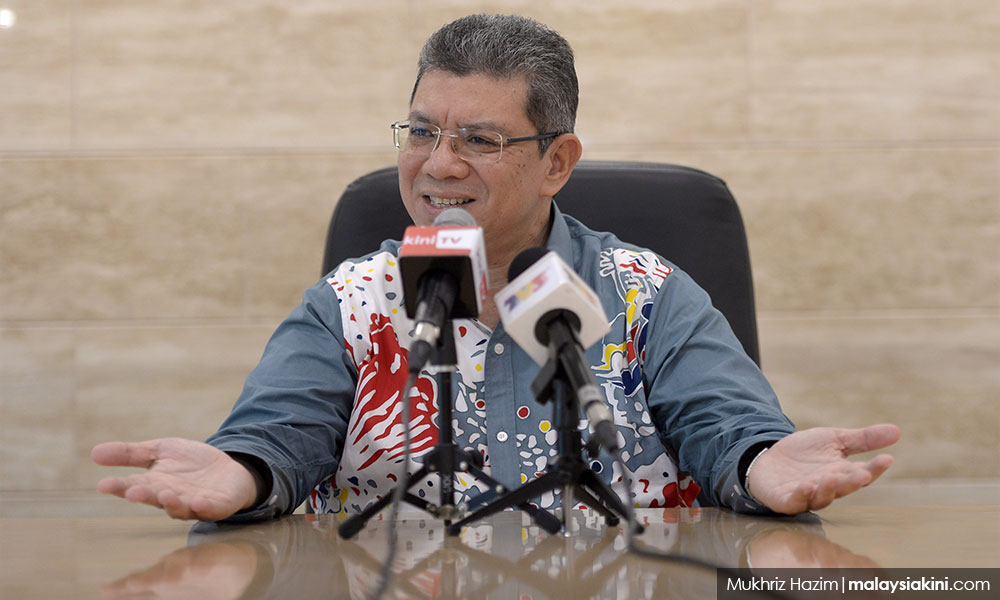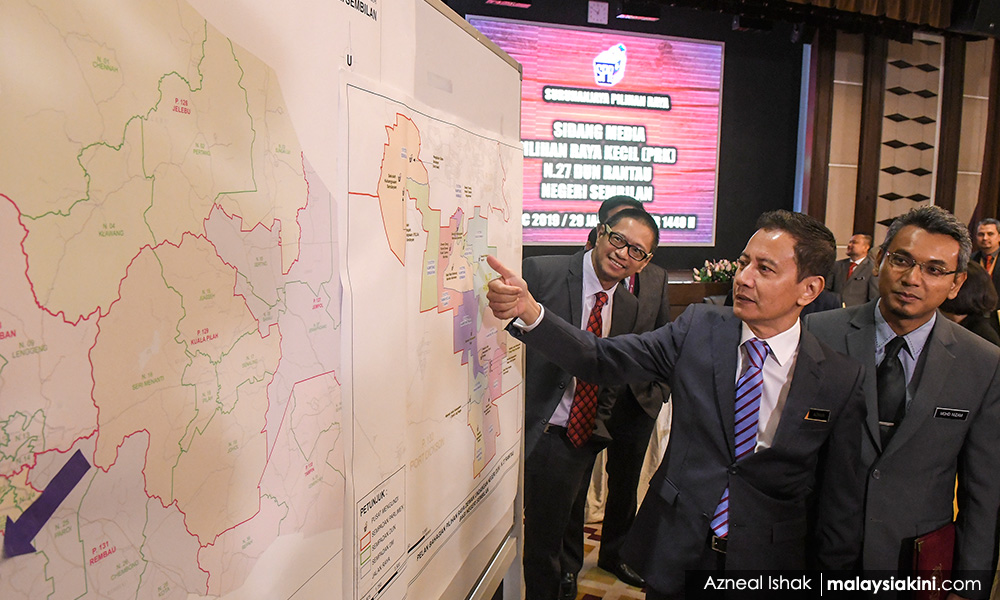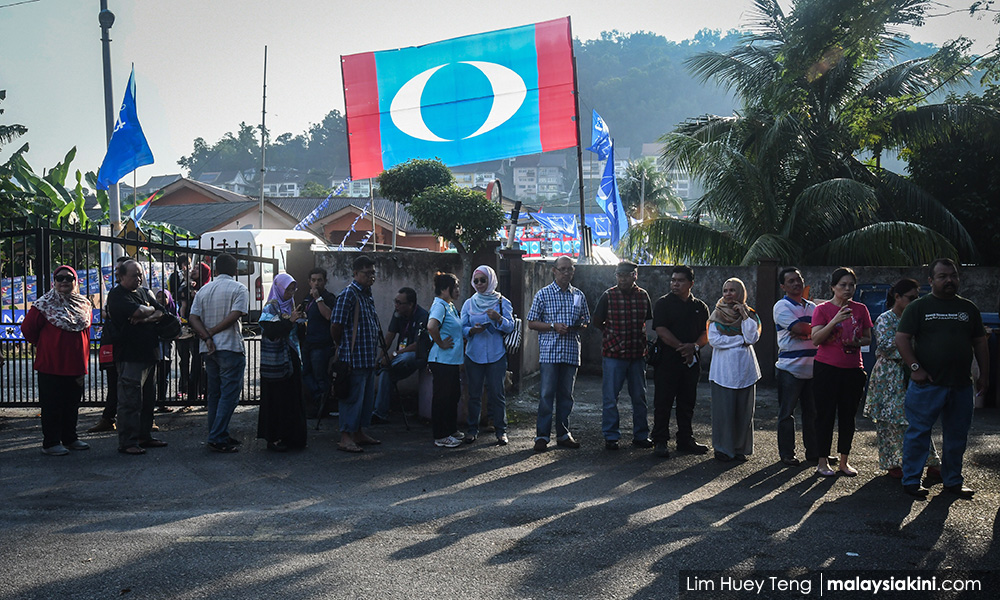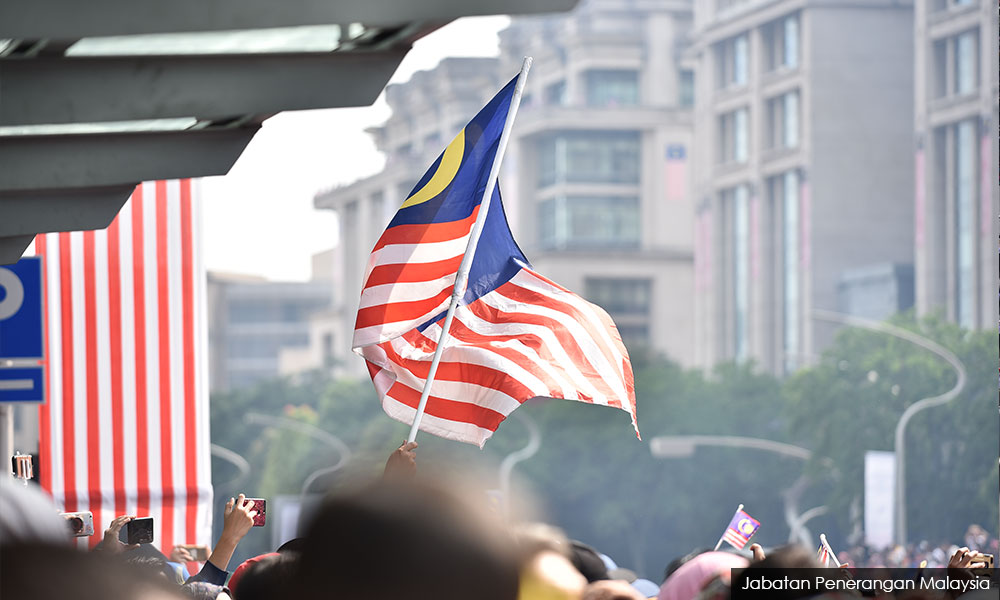
INTERVIEW | One way to discourage politicians from campaigning along extreme racial and religious lines would be a greater number of mixed constituencies, Foreign Minister Saifuddin Abdullah believes.
Saifuddin said there would be more mixed constituencies than there are at present, if not for the previous Election Commission's "blatant gerrymandering and malapportionment".
Saifuddin said in a group interview at Wisma Putra on National Day: "Look at our parliamentary constituencies in the last general election. Out of 222 seats, there are only about 83 seats which are really mixed seats.
"In actual fact, if you look at the geography of the constituencies, we should have had about 140 mixed seats. But I think the last EC was corrupt.
"Once we have more mixed seats, the dynamics of the campaign will be different. Politicians will be encouraged to campaign across ethnic lines.
"Anyone campaigning along an extreme racial agenda will not be successful because the constituents will be mixed."
The minister hen went on to add that he hopes the new EC would look into the matter seriously.
The last redelineation exercise took place in 2017, before the 14th general election. According to the Federal Constitution, electoral boundaries can only be delineated once every eight years.
EC chairperson Azhar Azizan Harun previously noted that a new redelineation exercise before this period is up would be unconstitutional, but he nevertheless said that the lawfulness of the current boundaries would be assessed.
Saifuddin believes that having more mixed constituencies would also change the way politicians choose and behave in parties.
If they have to campaign across ethnic lines, politicians would be more likely to join multiracial parties, he said.
"I am always for parties that are multiracial. I know people will ask me, then why did you join Umno? I joined Umno because I wanted to be a member of BN, I couldn't be a direct member of BN.
"But you need political parties that are multiracial," he said.
Democratic system
Saifuddin also believes that the most important project in Malaysia is to build up the democratic system based on the values shared by all Malaysians, regardless of their backgrounds.
“This is a huge project. It is something we really have to do, and it goes beyond taking action against one or two people, beyond just about economics.
“It is really building a new democratic system, and this is why I think the political reforms and institutional reforms related to democratic systems are an ongoing project.
“This is not about who will win elections. Malaysians want the politics and the democratic systems to genuinely represent the profile of the Malaysian community,” he said.
Right now, Saifuddin explained, the political situation in the country is moving into a new phase, which he called the third stage.
The first stage was the early days of democracy when the country was just formed, while the second stage was when the country began to strengthen its democratic institutions such as the Parliament, election and party systems.
"We are now, to my mind, in the third stage. It is about reform and the widening of people’s participation," he said.
These political and democratic reforms include moves such as establishing parliamentary select committees and the lowering of the voting age.
Increasing public participation, meanwhile, is when the government engages more with the business community and civil society.
“I am not saying BN did not do this at all. They had a few examples where they also consulted civil society and businesses, but not in a big way like what we are doing now.
“If you observe now, most ministries have their own consultative committees. Wisma Putra has its own consultative council. We never had that before," he said.
Saifuddin also spoke about patriotism and how it should be each individual’s own interpretation of their love for the country.
Above just raising the flag and singing Negaraku, he said one should strive to be a law-abiding citizen and contribute in any way to the country.
"It doesn’t mean that if you are a scientist, then you are less patriotic compared to your friend who happens to be a soldier.
"So everyone should be patriotic and everyone should contribute in whatever way," he said. - Mkini





No comments:
Post a Comment
Note: Only a member of this blog may post a comment.